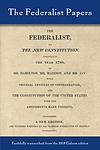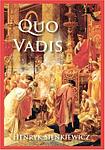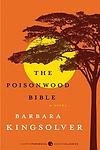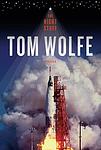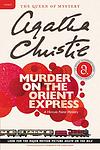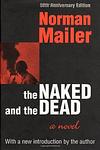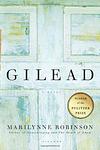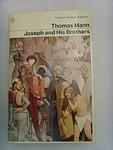The Greatest Books of All Time
Click to learn how this list is calculated.
This list represents a comprehensive and trusted collection of the greatest books. Developed through a specialized algorithm, it brings together 282 'best of' book lists to form a definitive guide to the world's most acclaimed books. For those interested in how these books are chosen, additional details can be found on the rankings page.
Genres
Countries
Date Range
Reading Statistics
Click the button below to see how many of these books you've read!
Download
If you're interested in downloading this list as a CSV file for use in a spreadsheet application, you can easily do so by clicking the button below. Please note that to ensure a manageable file size and faster download, the CSV will include details for only the first 500 books.
Download-
451. The Federalist Papers by Alexander Hamilton, James Madison, John Jay
"The Federalist Papers" is a collection of 85 articles and essays written to promote the ratification of the United States Constitution. These works discuss the benefits of a stronger national government, the proposed structure of the government, and the division of powers among its various branches. They also address criticisms of the Constitution and detail the failures of the Articles of Confederation. The papers remain a primary source for interpretation of the U.S. Constitution and the intentions of its framers.
-
452. Quo Vadis by Henryk Sienkiewicz
Set in ancient Rome during the reign of Emperor Nero, "Quo Vadis" follows the love story of a young Christian woman Lygia and a Roman patrician, Marcus Vinicius. As their relationship blossoms, they must navigate the dangerous political climate of the time, marked by Nero's tyranny and the growing influence of Christianity. The novel provides a vivid depiction of the clash between pagan Rome and the early Christian church, culminating in the Great Fire of Rome and subsequent persecution of Christians.
-
453. Life, a User's Manual by Georges Perec
The novel explores the lives of the inhabitants of a Parisian apartment block through a complex, multi-layered narrative. It delves into the interconnected stories of the building's residents, revealing their secrets, desires, and disappointments. The narrative is structured like a puzzle, with the author employing a variety of literary styles and devices, making it a complex and intriguing exploration of human life.
-
454. Cat's Cradle by Kurt Vonnegut
This novel is a satirical commentary on modern man and his madness, exploring issues of science, technology, and religion. The story revolves around a narrator who becomes involved with the children of a deceased scientist, who had developed a substance capable of freezing water at room temperature. This substance, if misused, has the potential to end all life on earth. The novel is filled with strange and twisted characters, and culminates in a cataclysmic event, highlighting the dangers of uncontrolled technological advancement.
-
455. Effi Briest by Theodor Fontane
This novel explores the life of a 17-year-old girl who is married off to a much older man, a high-ranking official, for the sake of social and financial stability. Despite her husband's devotion, she embarks on a passionate, but doomed affair with a charming, yet manipulative, major. The affair ends disastrously, leading to her social ostracization and eventual descent into loneliness and despair. The book serves as a critique of the rigid Prussian society of the late 19th century.
-
456. The Cherry Orchard by Anton Chekhov
"The Cherry Orchard" is a classic play about an aristocratic Russian woman and her family as they return to their family estate, which includes a large and well-known cherry orchard. The family is on the brink of financial ruin and the estate is slated to be auctioned off. Despite various attempts to save their beloved home and orchard, they are ultimately unable to prevent the sale. The play is a poignant reflection on the changing social order and the decline of the aristocracy in Russia at the turn of the 20th century.
-
457. The Siege of Krishnapur by J. G. Farrell
Set in India during the period of the British Empire, "The Siege of Krishnapur" is a historical novel that explores the events of the 1857 Sepoy Rebellion. The narrative focuses on the British residents of the fictional town of Krishnapur as they endure a prolonged siege by Indian soldiers. The story delves into the psychological, social, and physical challenges faced by the besieged, and the gradual disintegration of their Victorian-era beliefs and lifestyle. The novel is a commentary on the British Empire, colonialism, and the clash of cultures.
-
458. The Poisonwood Bible by Barbara Kingsolver
The Poisonwood Bible is a novel that follows the experiences of a missionary family in the Belgian Congo during the 1960s. The story is told from the perspective of the wife and four daughters of the Baptist minister who drags his family into the politically volatile Congo on a mission to save souls. The novel explores themes of cultural arrogance, religious zeal, and the clash of Western and African values, as well as the personal growth and self-discovery of the women in the family as they grapple with the harsh realities of their new life and the fallout from their father's single-minded vision.
-
459. Critique of Pure Reason by Immanuel Kant
This philosophical work delves into the nature and limits of human knowledge, proposing that while our knowledge begins with experience, it doesn't necessarily arise out of experience. The author argues that pure reason itself has the ability to contribute to our knowledge and understanding of the universe. He further explores the concept of metaphysics, asserting that while it is possible, it is also severely limited by the human mind's ability to comprehend it.
-
460. The Right Stuff by Tom Wolfe
"The Right Stuff" is a non-fiction novel that explores the lives and experiences of the first Project Mercury astronauts selected for the NASA space program in the 1960s. The book delves into the personal and professional lives of these astronauts, highlighting their courage, competitiveness, and the immense pressure they faced. It also provides a detailed account of the space race between the United States and the Soviet Union during the Cold War era.
-
461. Breakfast at Tiffany's by Truman Capote
This classic novella explores the life of a young writer in New York City and his relationship with his neighbor, a charismatic and eccentric woman who lives off the generosity of wealthy men. The woman, who dreams of a life of luxury and freedom, captivates the writer with her charm and mystery. The story is a poignant examination of love, friendship, identity, and the struggle for personal freedom in a society bound by conventions.
-
462. Murder on the Orient Express by Agatha Christie
A renowned Belgian detective finds himself embroiled in a complex murder case aboard the luxurious Orient Express train. The victim is a wealthy American businessman with numerous enemies, and the train's diverse passenger list includes individuals of varying nationalities and backgrounds, each with their own secrets. As the train is halted due to a snowdrift, the detective must race against time to solve the murder before the train reaches its destination and the murderer has a chance to escape.
-
463. Tinker, Tailor, Soldier, Spy by John le Carré
In this espionage thriller, a semi-retired British intelligence officer is tasked with uncovering a Soviet mole within the highest ranks of the British Secret Service. As he delves deeper into the investigation, he uncovers a web of betrayal and deceit that reaches far beyond the mole, threatening the very fabric of the British intelligence community. The novel is a masterful blend of suspense, intrigue, and complex characterization that explores themes of loyalty, identity, and the murky world of international espionage.
-
464. The Naked and the Dead by Norman Mailer
Set during World War II, this novel delves into the lives of a platoon of American soldiers stationed in the Pacific. The narrative explores the harsh realities of war, the complexities of human nature, and the struggle for survival in an unforgiving environment. The soldiers grapple with their fears, hopes, and the brutalities of war, revealing their innermost thoughts and experiences. The book is a gritty and realistic depiction of the psychological effects of war and the human capacity for resilience.
-
465. Gilead by Marilynne Robinson
The novel is a series of reflections written by an elderly dying pastor in 1956 in Gilead, Iowa, as a letter to his young son. The protagonist, John Ames, shares his family history, personal thoughts, and the struggles of his life, including the tension with his namesake and godson who returns to their small town. The book explores themes of faith, regret, and the beauty of existence, providing a profound meditation on life and death.
-
466. The Decline and Fall of the Roman Empire by Edward Gibbon
This historical work provides a comprehensive perspective on the fall of the Roman Empire, examining its decline from the height of its power in the second century A.D. through the fall of Constantinople in 1453. The author meticulously chronicles the empire's deterioration due to a variety of factors, including moral decay, economic crisis, military incompetence, barbarian invasions, and internal power struggles, while also offering insightful commentary on the broader implications for Western civilization.
-
467. Underworld by Don DeLillo
"Underworld" is a sweeping narrative that spans from the 1950s to the end of the 20th century, exploring the interconnectedness of events and the impact of the Cold War on American society. The story revolves around a diverse group of characters, including a waste management executive, a graffiti artist, a nun, and a baseball collector, among others. These characters' lives intertwine in unexpected ways, illustrating the complex web of relationships and influences that shape our world. The novel is renowned for its vivid portrayal of historical events and its profound examination of themes such as memory, technology, and waste.
-
468. Watchmen by Alan Moore
Set in an alternate history where superheroes emerged in the 1940s and 1980s, the story follows a group of retired superheroes who are brought out of retirement after the murder of one of their own. As they investigate, they uncover a plot that could change the course of history and the balance of world power. The book explores complex themes such as the morality of power, the definition of heroism, and the value of human life.
-
469. Never Let Me Go by Kazuo Ishiguro
The novel is a haunting tale of three friends, who grow up together at a seemingly idyllic English boarding school. As they mature, they discover a dark secret about their school and the purpose of their existence, which is to become organ donors for the rest of society. The story is a profound exploration of what it means to be human, the morality of scientific innovation, and the heartbreaking reality of love and loss.
-
470. The Thorn Birds by Colleen McCullough
"The Thorn Birds" is a sweeping family saga that spans three generations of the Cleary family, set against the backdrop of the Australian outback. It focuses on the forbidden love between the beautiful Meggie Cleary and the family's priest, Father Ralph de Bricassart. The novel explores themes of love, religion, and ambition, as Meggie and Ralph struggle with their feelings for each other and the choices they must make.
-
471. Season of Migration to the North by Al-Tayyib Salih
The novel is a post-colonial exploration of the complex relationship between the East and the West. It tells the story of a young man who returns to his village in Sudan after studying in Europe, only to find that a new villager, a man who has also spent time in the West, has brought back with him a very different perspective on the relationship between the two cultures. The story unfolds as a gripping psychological drama, filled with themes of identity, alienation, and the clash of cultures.
-
472. Philosophical Investigations by Ludwig Wittgenstein
This book is a seminal work in 20th-century philosophy, presenting a detailed critique of the notion that our language directly corresponds to reality. The author argues that the meaning of words is not inherent, but rather derives from their use within specific forms of life. The book also introduces the concept of language games, suggesting that our understanding of language is akin to learning the rules of a game. The author further explores the limits of language, the nature of understanding, and the relationship between public and private language.
-
473. The Notebooks of Malte Laurids Brigge by Rainer Maria Rilke
"The Notebooks of Malte Laurids Brigge" is a semi-autobiographical novel narrated by a young man from Denmark living in Paris, who is trying to understand the world and his place in it. The protagonist is a poet and a dreamer, who spends his time observing and reflecting on the people and situations around him. The book is a collection of his thoughts, observations, and musings, which often revolve around themes of death, solitude, history, and the nature of existence. It's a deep and introspective exploration of the human condition and the nature of creativity.
-
474. Lysistrata by Aristophanes
"Lysistrata" is a comedic play set in ancient Greece, where the women of Athens, led by the eponymous character, decide to withhold sexual privileges from their husbands and lovers in order to force them to negotiate a peaceful end to the Peloponnesian War. Along with the women of Sparta, they seize the Acropolis and the treasury, and through their non-violent resistance, they manage to bring about a reconciliation between the warring states. The play is a humorous exploration of gender roles and the power of passive resistance.
-
475. Joseph and His Brothers by Thomas Mann
This novel is a re-imagining of the biblical story of Joseph, known for his coat of many colors. The narrative delves deeply into the psychological aspects of each character, exploring their motivations, flaws, and virtues. The story covers Joseph's life from his early years in Canaan, through his betrayal by his brothers who sell him into slavery in Egypt, his rise to power in Pharaoh's court, and his eventual reconciliation with his brothers. The novel is a rich tapestry of dreams, myths, and rituals, blending biblical tradition with the author's own philosophical insights.
Reading Statistics
Click the button below to see how many of these books you've read!
Download
If you're interested in downloading this list as a CSV file for use in a spreadsheet application, you can easily do so by clicking the button below. Please note that to ensure a manageable file size and faster download, the CSV will include details for only the first 500 books.
Download